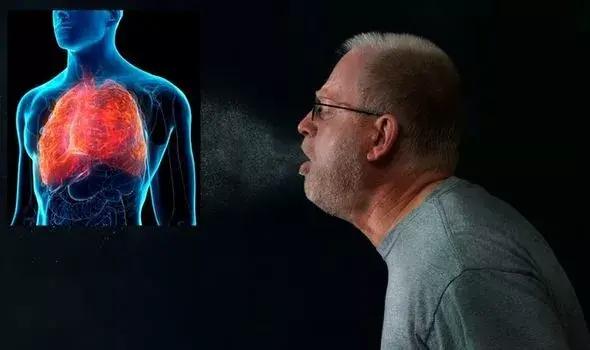We’ve all experienced that nagging cough or tightness in our chest at some point. How do we know when it’s more than just a common cold? Recognising chest infection symptoms early can make a big difference in our recovery. From pneumonia to bronchitis, these infections can range from mild to severe, and knowing the signs can help us get the right treatment quickly.
In this article, we’ll explore the common signs of a chest infection and how to tell the difference between viral and bacterial infections, which can impact treatment options. We’ll also cover when it’s time to see a doctor and what to expect in terms of chest infection treatment, including the use of medications like paracetamol. By the end, you’ll have a better understanding to spot potential issues and take action for your health.
Common symptoms of a chest infection
Chest infection symptoms can vary, but there are some common signs to watch out for. These infections, which affect the lungs or airways, can be caused by either viruses or bacteria. Let’s take a closer look at the main symptoms that might indicate a chest infection.
Cough
A persistent cough is often the most noticeable sign of a chest infection. We might experience a dry cough or one that produces phlegm. The phlegm can be yellow or green, and in some cases, we might even cough up blood. It’s important to remember that coughing helps clear the infection by getting rid of phlegm from our lungs.
Shortness of breath
We may find ourselves feeling breathless or notice that our breathing becomes rapid and shallow. This can be particularly concerning if we have existing conditions like asthma. In severe cases, such as pneumonia, we might struggle to get enough air into our lungs.
Chest pain
Chest pain or tightness, especially when taking a breath, is another common symptom. This discomfort can range from mild to severe and might worsen with coughing or deep breathing.
In addition to these main symptoms, we might also experience:
- A high temperature or fever
- A rapid heartbeat
- Wheezing
- Breathlessness
- Increased tiredness or fatigue
- Loss of appetite
- Muscle and joint pain
- Headaches
- Sweating more than usual
It’s worth noting that these symptoms can vary in severity depending on whether we have bronchitis or pneumonia, the two main types of chest infections. Pneumonia symptoms are often more severe and may come on more quickly.
Difference between viral and bacterial infections
It is challenging to tell the difference between viral and bacterial chest infections, as they can cause similar symptoms. However, understanding the differences is important for proper treatment. Let’s explore the key differences between these two types of infections.
Viral infection symptoms
When dealing with a viral chest infection, we typically experience symptoms that develop gradually over a few days. These may include:
- A runny nose
- A dry cough that may worsen over time
- Low-grade fever
- Sore throat
- Difficulty sleeping
- Body aches and muscle pain, especially with influenza
Viral infections often affect both sides of our lungs, causing a more widespread inflammatory reaction. This can lead to increased mucus production and congestion throughout the respiratory system.
It’s important to remember that antibiotics don’t work against viral infections. Instead, we focus on relieving symptoms until we start to feel better. In some cases, like with influenza, antiviral medications can shorten the duration of illness if taken within the first 48 hours.
Bacterial infection symptoms
Bacterial chest infections, on the other hand, tend to have symptoms that come on more suddenly and can be more severe. We might experience:
- A high fever, sometimes reaching 105°F (40.5°C)
- Excessive sweating
- Rapid breathing and increased pulse rate
- A cough that produces yellow or green mucus
- Chest pain or tightness
- Shortness of breath
Bacterial infections often target specific areas of the lungs, causing more localised inflammation. When a doctor listens to the lungs, they might hear normal sounds on one side but no sounds on the other, which can indicate a bacterial infection.
Bacterial pneumonia, a common type of chest infection, requires medical attention as symptoms of pneumonia can develop quickly. It is typically treated with antibiotics and it’s important to complete the entire course of antibiotics as prescribed, even if we start feeling better.
In both viral and bacterial infections, we might notice changes in our mucus colour. Clear or white mucus usually points to a viral infection, while yellow or green mucus often suggests a bacterial infection. However, this isn’t always a clear indicator, and we should consult a healthcare professional for an accurate diagnosis.
When to seek medical attention
Chest infection symptoms can range from mild to severe. While many cases clear up on their own, there are times when medical attention is necessary. Let’s explore the situations that call for professional help and identify the groups at higher risk for complications.
Severe symptoms
We should seek medical attention if we experience any of the following severe chest infection symptoms:
- Difficulty breathing or shortness of breath at rest
- Sharp, stabbing chest pain that worsens when breathing or coughing
- A persistent high fever, especially if it reaches 105°F (40.5°C)
- Coughing up blood or blood-stained phlegm
- Confusion, disorientation, or drowsiness
- A blue tinge to the skin or lips (cyanosis)
If we notice these signs, it’s crucial to see a doctor right away or go to a hospital emergency department. In cases of severe breathing difficulties, we shouldn’t hesitate to call for an ambulance.
Pneumonia, a serious type of chest infection, can make us ill very quickly. If we suspect pneumonia, it’s important to seek advice promptly as it can be life-threatening if left untreated.
High-risk groups
Some of us are at increased risk of developing serious chest infections. These high-risk groups include:
- Babies and young children, especially those under five
- Older people, particularly those 65 and over
- Pregnant women
- People who smoke
- Individuals who are very overweight
- Those with weakened immune systems due to conditions like HIV/AIDS or recent chemotherapy
- People with long-term health conditions such as asthma, heart disease, diabetes, or chronic obstructive pulmonary disease (COPD)
If you fall into any of these categories, you should be extra cautious about chest infection symptoms and seek medical advice sooner rather than later. The flu vaccine and pneumococcal vaccine may be recommended by a healthcare professional if you fall into one of these groups. Early treatment can make a significant difference in recovery and help prevent complications.
Conclusion
Recognising chest infection symptoms early has a significant impact on our health and recovery. By understanding the common signs, such as persistent cough, shortness of breath, and chest pain, we’re better equipped to spot potential issues and take action. This knowledge helps us to make informed decisions about when to seek medical attention.
Sources
- Chest infection – NHS
- Chest infection – NHS inform
- Pneumonia – NHS
- Signs and symptoms of chest infections – NHS
Medical Disclaimer
NowPatient has taken all reasonable steps to ensure that all material is factually accurate, complete, and current. However, the knowledge and experience of a qualified healthcare professional should always be sought after instead of using the information on this page. Before taking any drug, you should always speak to your doctor or another qualified healthcare provider.
The information provided here about medications is subject to change and is not meant to include all uses, precautions, warnings, directions, drug interactions, allergic reactions, or negative effects. The absence of warnings or other information for a particular medication does not imply that the medication or medication combination is appropriate for all patients or for all possible purposes.









